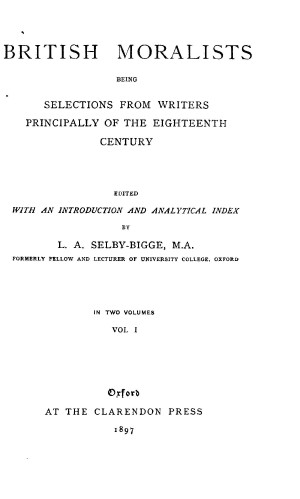
Part of: British Moralists 2 vols. British Moralists vol. 1
- Jeremy Bentham (author)
- Joseph Butler (author)
- Francis Hutcheson (author)
- Anthony Ashley Cooper, Earl of Shaftesbury (author)
- Adam Smith (author)
- Lewis Amherst Selby-Bigge (editor)
Vol. 1 contains selections from the work of Shaftesbury, Hutcheson, Butler, Adam Smith, and Bentham.